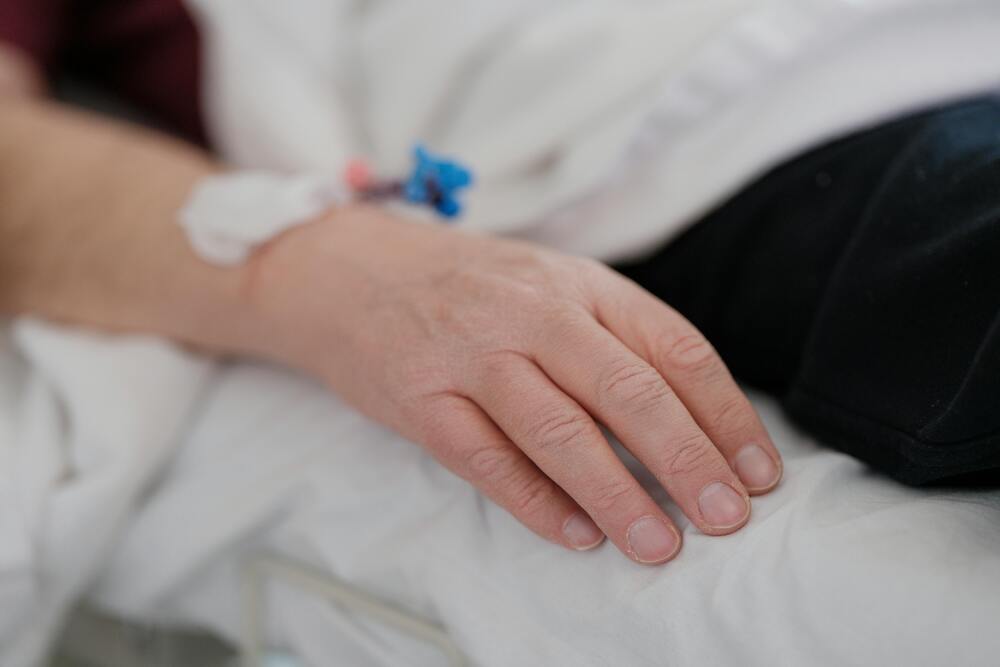These categories of recovery reflect the profound and lasting impact locked-in syndrome has on every facet of life. Beyond immediate medical costs, they encompass the emotional toll, altered family dynamics, and extensive long-term support required to sustain the survivor’s well-being and preserve their quality of life over time.
Locked-In Syndrome After a Traumatic Brain Injury? Get Help from an Experienced Ohio Injury Lawyer

Locked-in syndrome is one of the most devastating outcomes any family can face after a traumatic brain injury. The person you love is fully conscious and aware—but unable to move, speak, or respond. It’s a catastrophic condition that requires lifelong care, advanced communication tools, and an extensive support system just to maintain basic quality of life.
If your family is dealing with this diagnosis after a serious traumatic brain injury, you’re likely overwhelmed. You may not know what your legal rights are—or how to make sure your loved one’s needs are covered for the long term. At The Jones Firm, we help Ohio families secure the compensation and medical resources they’ll need to navigate a future shaped by locked-in syndrome.
What is Locked-In Syndrome?
Locked-in syndrome (LIS) is a rare neurological condition that occurs when a person suffers damage to the brainstem, usually at the pons, which controls motor signals from the brain to the body. Individuals with LIS are:
- Fully conscious and cognitively intact
- Unable to move most of their body voluntarily
- Unable to speak
- Often able to move their eyes or blink (which becomes their primary method of communication)
Most people with locked-in syndrome require around-the-clock care, ventilator support, feeding tubes, and significant home modifications. Communication is often limited to eye-tracking devices or blinking-based systems.
Causes of Locked-In Syndrome
While LIS is most commonly associated with strokes, it can also result from traumatic brain and spinal cord injuries, including those caused by:
- Falls from height (common in construction and industrial jobs)
- Crushing accidents involving machinery or vehicles
- Severe head trauma from a motor vehicle collision or sustaining a blow to the head
- Oxygen deprivation following electrical accidents or near-drowning incidents
- Toxic exposure that damages neurological function
Serious motor vehicle collisions, such as truck accidents, motorcycle accidents, bicycle accidents, or pedestrian accidents, can cause locked-in syndrome to occur as a result of a severe traumatic brain injury. These types of injuries are much more likely to occur when the smaller, lighter pedestrian or vehicle collides with a heavier truck or vehicle, especially at higher speeds.
In work environments where heavy equipment, elevated surfaces, electrical systems, or hazardous materials are involved, even one moment of negligence can result in irreversible brainstem trauma.
Locked-in syndrome can also be caused by medical malpractice, such as delayed diagnosis and treatment for a stroke.
You May Be Entitled to Compensation If:
- The condition occurred as a result of a car or truck accident caused by a negligent driver
- The condition occurred as a result of a delayed diagnosis
- A third party caused or contributed to the injury—such as a contractor, subcontractor, manufacturer, or property owner
- The injury was caused by defective equipment, poor safety planning, or OSHA violations
- There was gross negligence or willful misconduct involved
In these situations, you may have grounds to pursue a personal injury lawsuit. These lawsuits allow recovery for:
- Pain and suffering
- Loss of companionship
- Long-term care expenses
- Future medical and assistive technology costs
- Emotional trauma endured by both the survivor and their family
What Kind of Damages Can Be Recovered?
A personal injury or third-party claim for locked-in syndrome should reflect the full scope of economic and non-economic damages, including:
1. Medical Expenses (Lifetime)
- Ventilator care and respiratory therapy
- Feeding tubes and nutritional support
- Neurological rehabilitation
- Speech and occupational therapy
- Medications and medical supplies
- Regular hospitalizations for complications
2. Home and Mobility Modifications
- Hospital beds, patient lifts, wheelchair-accessible showers
- Home renovations for accessibility
- Custom vehicles with life-support features
- Communication devices (eye-tracking, AAC systems)
3. 24/7 Skilled Nursing or In-Home Care
- Live-in or rotating caregiver teams
- Specialized providers trained in LIS care
4. Lost Wages and Future Earning Potential
Even if the injured person was young and healthy with decades of earning potential ahead of them, LIS typically means a complete inability to work. That loss should be fully calculated and included in any claim.
5. Pain and Suffering
While LIS survivors may not be able to express their pain vocally, they experience everything. The physical discomfort, emotional distress, and psychological anguish must be considered.
6. Loss of Consortium and Emotional Support
Family members, particularly spouses and children, are often entitled to compensation for the loss of companionship, guidance, and shared life.
What Makes These Cases So Complex?
Unlike more straightforward injury claims, LIS cases require an intense level of planning, evidence, and expert testimony.
Key challenges include:
- Proving future care needs over decades
- Calculating long-term medical inflation and non-covered costs
- Quantifying loss of cognitive participation despite physical immobility
- Documenting full family impact for non-economic claims
It’s not a case that should be handled by a general practice attorney. You need a law firm that has handled catastrophic neurological injury cases and knows how to work with neurologists, economists, life care planners, and trial experts.
How The Jones Firm Supports Families Living With Locked-In Syndrome
We understand that your first priority is caring for your loved one—not fighting with insurance companies or trying to interpret legal procedures. Our role is to take that burden off your shoulders and fight for the resources your family needs.
When you work with The Jones Firm:
- We will thoroughly investigate your claim to determine if another party is legally responsible
- We build your case from day one, including input from experts such as medical doctors and life care planners where appropriate
- We calculate accurate future costs—down to assistive technology and home nursing
- We identify every liable party and every available avenue for compensation
- We protect your privacy, your time, and your peace of mind
We take on these cases because we know what’s at stake. Locked-in syndrome is permanent. Your settlement or verdict has to reflect that reality.
Frequently Asked Questions
“What if my loved one can’t speak or communicate—can we still file a claim?”
Yes. As a legal guardian, spouse, or court-appointed representative, you can pursue compensation on their behalf. We’ll help you through the process of establishing authority and building the case.
“How long do we have to act?”
Ohio law generally allows two years to file a personal injury lawsuit (or wrongful death, if applicable). However, the earlier we get involved, the more options we’ll have to protect your claim.
Let’s Talk About What’s Next
If your loved one is living with locked-in syndrome because of an injury in Ohio, you need a legal team that understands both the medical realities and the legal terrain. This isn’t about quick answers—it’s about making sure your family is supported for the long haul.
At The Jones Firm, we handle the hardest cases—because those are the ones where strong legal work makes the biggest difference. You don’t need to figure everything out at once. You just need a place to start. And we’re here.
Contact The Jones Firm today for a free consultation.
No fees unless we recover compensation for your family
Serving Columbus and clients across the state of Ohio



